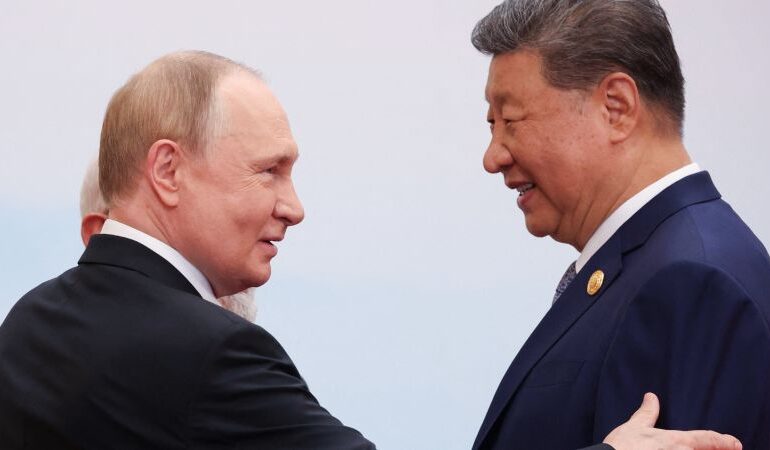Russia to Equip and Train Chinese Airborne Battalion, Leaked Docs Show

Russia has confirmed plans to equip and train a Chinese airborne battalion, according to leaked documents analyzed by the Royal United Services Institute (RUSI). This agreement marks a significant step in the escalating military cooperation between Beijing and Moscow, reflecting their deepening ties.
The documents, reportedly obtained by the Black Moon hacktivist group, detail a deal struck in 2023 in which Russia will provide a range of military equipment to the People’s Liberation Army (PLA). This includes assault vehicles, anti-tank guns, and airborne armored personnel carriers. The armored vehicles will be outfitted with Chinese communication systems and command-and-control suites, indicating a tailored approach to enhance their operational effectiveness.
Under the terms of this agreement, Russia will not only supply hardware but also share technology that will enable China to manufacture similar weapons independently. RUSI’s analysis suggests that the successful implementation of this deal could significantly enhance China’s air maneuver capabilities. This is particularly noteworthy as air operations remain one of the few military domains where Russia retains an advantage over the PLA.
Experts from RUSI indicate that improved capabilities in this area could support China’s ambitions regarding Taiwan, the self-governing island that Beijing claims as part of its territory. In an analysis, RUSI fellows Oleksandr V Danylyuk and Jack Watling noted, “Russia is equipping and training Chinese special forces groups to penetrate the territory of other countries without being noticed, offering offensive options against Taiwan, the Philippines, and other island states in the region.”
Tensions in the South China Sea, where China has overlapping claims with several nations, have led to frequent maritime confrontations. The Philippines, along with other countries, is directly affected by China’s assertive territorial stance.
While CNN has not independently verified the leaked documents, the implications of the deal are considerable. There remains uncertainty regarding the full realization of the agreement. Attempts to obtain comments from China’s Ministry of National Defense have gone unanswered.
Historically, Russia and China have engaged in arms trading since the 1990s, but the last decade has seen a marked strengthening of their military partnership. This shift has coincided with closer relations between Russian President Vladimir Putin and Chinese leader Xi Jinping, raising concerns in Washington. Notably, the recent Chinese military parade showcased the three leaders, including North Korean leader Kim Jong Un, standing in solidarity against the US and its allies.
Putin has described the bilateral relationship as being at an “unprecedentedly high level.” Recently, the two countries have reportedly finalized a long-delayed agreement to construct a significant new pipeline for natural gas to flow to China via Mongolia. Following Russia’s full-scale invasion of Ukraine in February 2022, Moscow has increasingly relied on China to replace Europe as its principal gas buyer.
Joint military exercises have also intensified, with both nations participating in naval patrols around Japan and conducting air and sea operations near Alaska. In August, they executed their first joint submarine patrol in the Pacific, as reported by state-run media. In total, China and Russia are set to conduct 14 joint military drills in 2024, marking the most extensive collaboration since they began joint exercises in 2003.
The primary advantage for China in this latest agreement lies in the training of the airborne battalion. Russian forces possess valuable combat experience in this area, while the PLA lacks similar operational history. Should China decide to launch an attack on Taiwan, air maneuvers could prove essential for deploying critical personnel and equipment to the island quickly. However, any successful invasion would likely necessitate a complex and challenging amphibious assault.
Training under this agreement will occur both in Russia and within China, with Russian instructors preparing the Chinese airborne battalion at designated training grounds. This initiative aims to enhance their skills in landing operations, fire control, and maneuvering, thereby strengthening China’s military readiness in the region.






